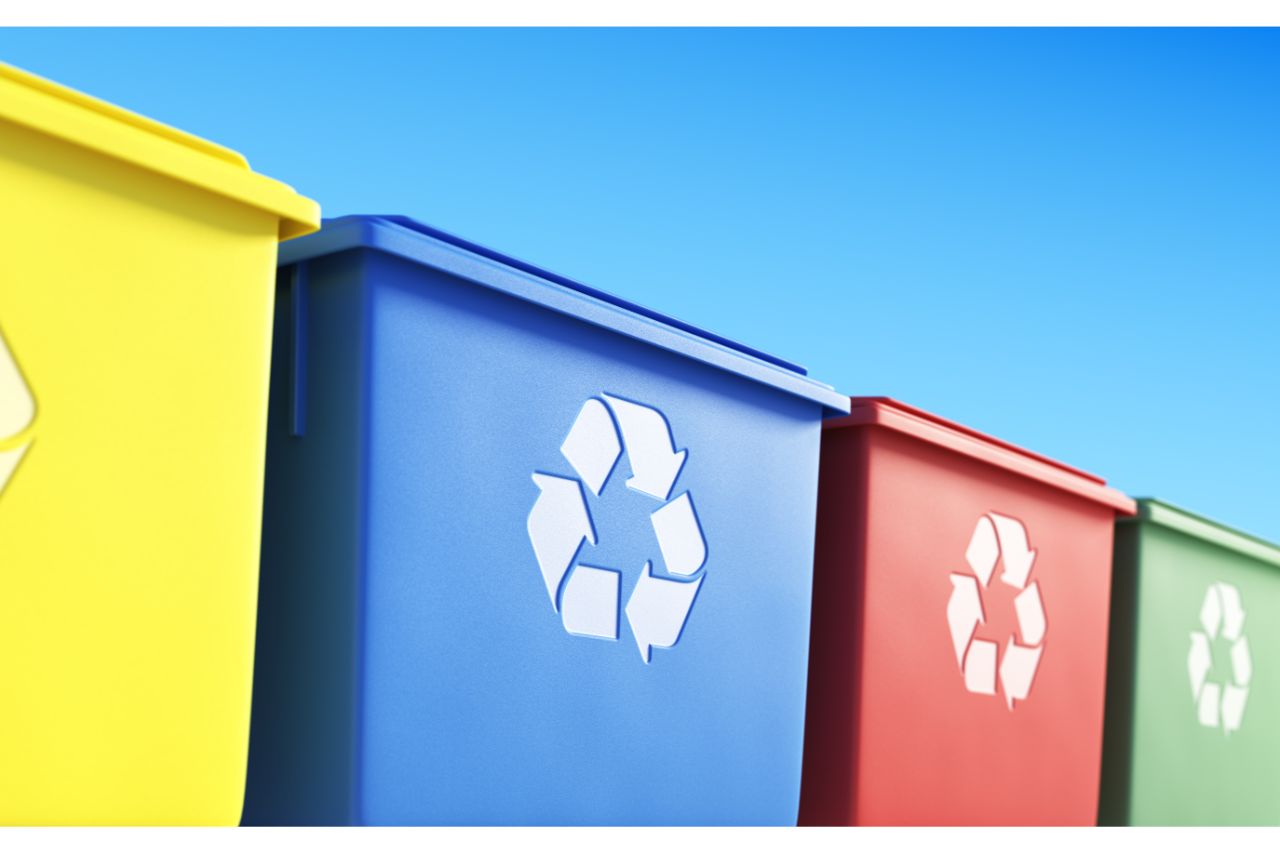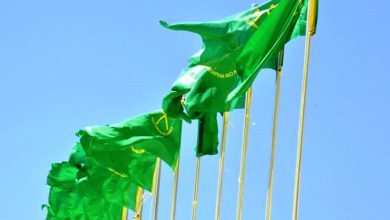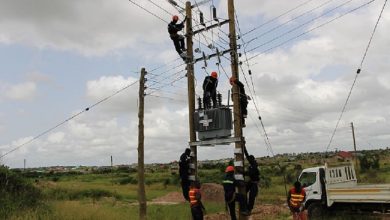Dodoma farmers see fortune in the technological use of underground water
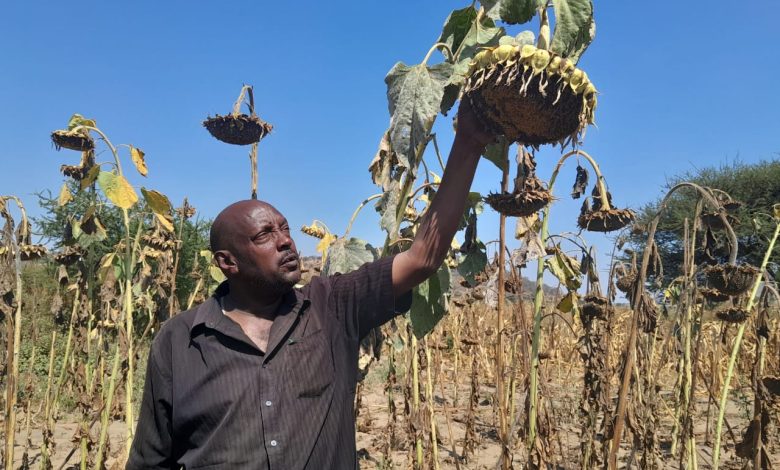
DODOMA: FLOWERING, with green leaves, a huge mango tree stood tall among thickets of dried thorny bushes along Dar es Salaam- Dodoma SGR tracks in a hot and humid September this year.
The situation baffled travelers who boarded the SGR Train from Dar es Salaam, who saw the situation as quite unbelievable.
Why should the mango tree stay green while every plant is dead dry? “ wondered one of the travellers.
A mango tree can survive droughts because its roots go deeper down to search for water. Dodoma has an abundance of underground water,” said a tall woman who identified herself as an agricultural expert from Ukiriguru Agricultural Institute based in Mwanza.
The farming success reported in three villages of Dodoma verified what the agricultural experts said to the SGR passengers barely a month later.
The three villages, Izava, Umoja, and Kimeji in Itiso Division, Chamwino District, Dodoma Region, are a fine example of how the underground water rescued them from drought challenges.
They say their commitment to modern agriculture using technology and coping with drought due to the current unpredictable rainfall is successful.
This step has come after individual farmers were unable to afford to buy quality seeds, tractors, medicines, dig wells to store water for irrigation, and secure markets for their crops.
A large part of the city of Dodoma, located in central Tanzania, is affected by drought, which sometimes causes crops to spoil.
Joining forces has become an important part of benefiting from modern agriculture, which is more profitable for the villagers, especially during this time of climate change.
Together, they have decided to establish their own association called the Sunflower Cooperative Association in the sunflower value chain (IZAKU), which manages everything from cultivation, sales, marketing, and distribution to members.
I visited these villages when the farmers had harvested the crop and spoke to the farmers to find out what motivated them to join forces.
The association so far has more than 3,000 members, but the members who have fulfilled the conditions and criteria are 160 men, 100 women, and 60 of them are young people.
This step of the union also aims to put together forces in dealing with climate change, especially the drought that has affected many farmers in these villages.
During this year, they have harvested sunflowers, which they got 400 bags of which 200 were sold to large factories that extract sunflower oil, and the other 200 they extracted themselves and sold the oil and pulp.
From the 2025 Agriculture, they managed to raise 75m/-, expecting to share the funds early next year, with the rest being earmarked for seed purchases.
The Chairman of the IZAKU Group, Omary Miati, says that so far, they have more than 3,000 acres for small farmers and 30,000 acres for large farmers in the ward.
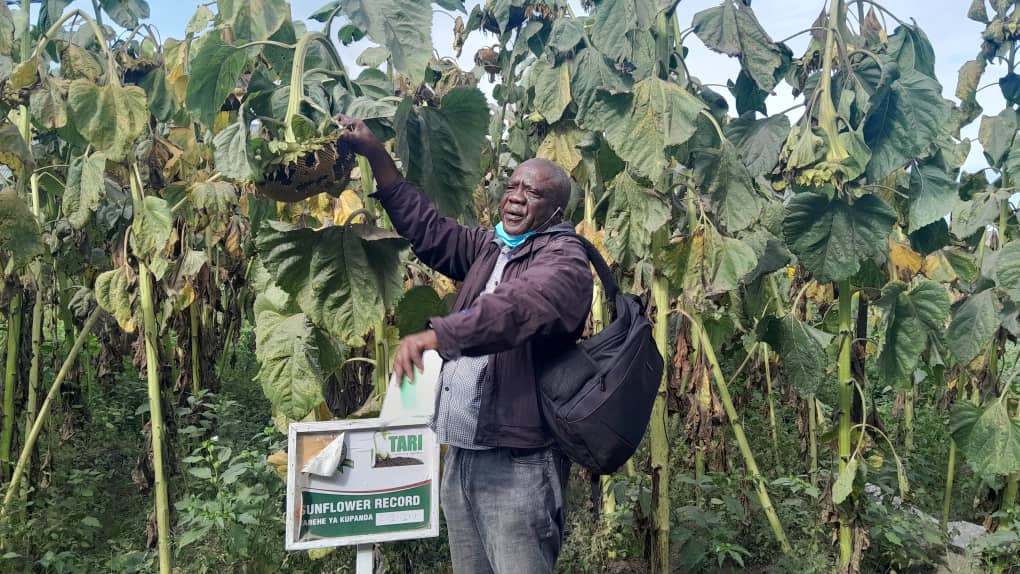
“In this sunflower cultivation project, we were initially cultivating locally, but the Agricultural Trade and Farmers’ Empowerment Training Institute (TAFAMO) and the Urban and Rural Development Institute (RUDI) brought us the best ‘Superfine’ sunflower seeds.
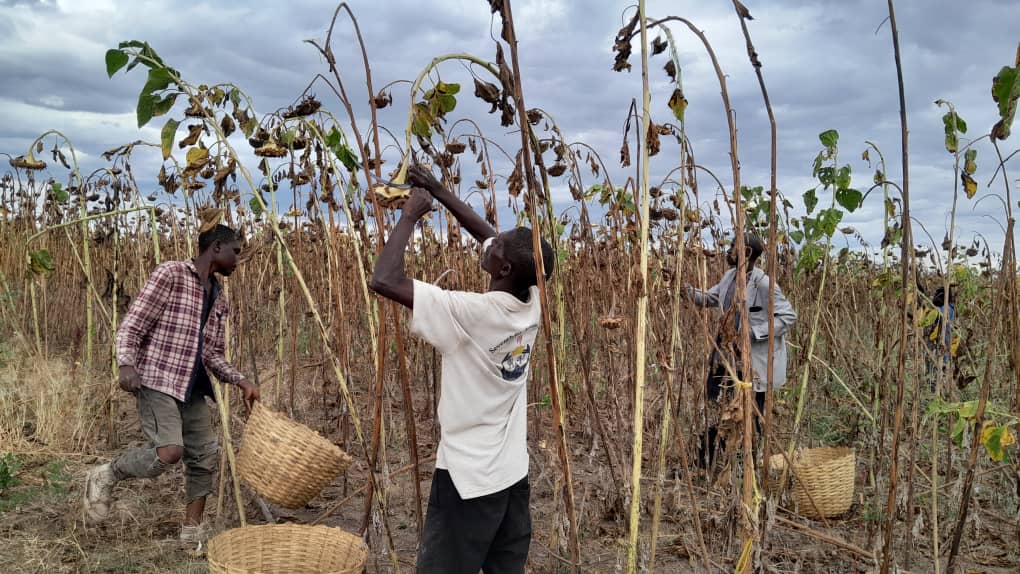
He notes that they have very high expectations, and the main goal is to build warehouses and have a large sunflower oil pressing machine.
“We are currently preparing seeds also through the harvesting we do, and we sell our seeds to other farmers for 15,000 shs per two kg. In our farming, we also buy hybrid seeds, which are expensive at 50,000/- per kilo,” he explains.
He adds, “We expect to have contract farming and factories to provide us with the best modern seeds so that in the nine years of our unity, we will be more successful,” he emphasizes.
He notes that so far, they are serving 3,000 farmers in those villages who cultivate sunflowers and maize, and managing them.
Miati says that through RUDI and TAFAMO, they have helped them get more than 50 seed sowing machines, and it has helped provide employment for the youth.
“The youth have planted more than 2,170 acres this season, and for each acre they get 5,000 shs, and now they are sunflower farmers.”
To deal with the shortage of rain, Miati said they have already started using the well project that they dug in a 40-acre farm, and the system they will use to irrigate is drip.
“At this time that we have started irrigation farming, we are expecting to produce more now. Instead of cultivating once a year, we will be cultivating three times a year because we will no longer depend on rain,” he emphasizes.
Happyness Sadala, a member of IZAKU, says the project has been able to bring unity and solidarity as well as provide employment to the residents of the villages while they are aiming for production more than once a year.
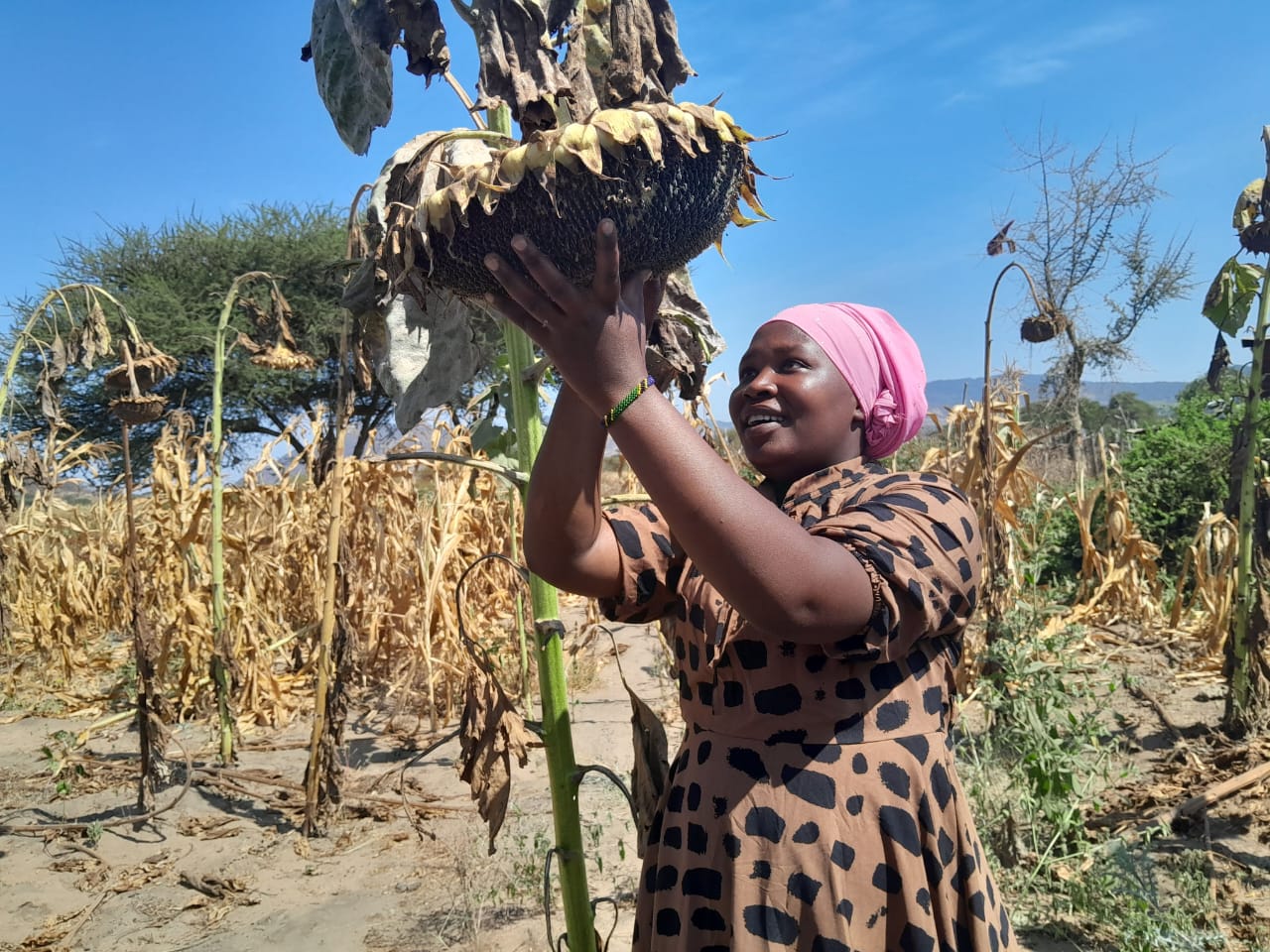
She says that through the wells, they are protecting rainwater and other groundwater, so there will no longer be an obstacle for them to wait for the rainy season.
“There is little rain in Dodoma, and the drought has become more prevalent. We saw this and said that to succeed, it is better to unite together to be able to make major changes and deal with every situation that comes before us, such as lack of rain, plant diseases, lack of capital, and others,” Happiness emphasizes.
Happyness says that at first they were using a hand hoe and the harvest was small, which was in line with their expectations, but now, when they use a tractor, the situation has changed; they cultivate a large area in a short time and get a lot of produce.
“There are 30 women and 30 young people who own the farms. We are grateful because they earn an income and run their lives, some have bought bodabodas, and others we have built their house, we educate children, it is easier.
To cope with climate change, including lack of rainfall, the Agricultural Research Institute (TARI) Ilonga, located in Kilosa District, Morogoro Region, has conducted research on 50 types of sunflower seeds.
TARI is conducting research in collaboration with the Tanzania Agricultural Marketing Systems Development Institute (AMDT), which has invested more than Sh4 billion to facilitate projects to develop the Sunflower and legume sectors in the country.
Sunflower Department Assistant Researcher, Beatrice Nnko, says they have conducted a test of sunflower genetics that have been collected from various areas inside and outside Tanzania.
ALSO READ: Nyerere’s vision for Dodoma taking shape through strategic projects
Nnko notes that the test aims to discover sunflower traits that can help in producing seeds that can cope with climate change, where the weather has been changing.
She explains that they are conducting research to be able to adapt to climate change in different parts, and each seed has its own characteristics, where some can withstand drought and others can withstand high water.
“If we can detect it, we can increase the number of seeds and also produce or transplant them so that they have those characteristics, and the seeds that are obtained will be sent to other regions and planted according to the weather and environment of the region,” emphasized Nnko.
National Sunflower Research Coordinator and Project Manager between TARI and AMDT, Frank Reuben, says the goal of the project is to increase seed availability and increase seed safety in the country.
“When we talk about seed safety, it is to ensure that any farmer who needs seeds can get quality seeds that have been certified by the Seed Quality Control Institute (TOSCI), but whether the seed is planted during bad weather or good, the farmer will plant the seeds and germinate is called seed safety,” he explains.
Frank says There is a huge demand for sunflower seeds, and the demand is increasing year by year. If 5,000 tonnes of seeds are obtained, many farmers will get seeds, but if 15,000 tonnes are obtained, it will make all farmers in the country able to get seeds.
“To produce enough seeds, AMDT advises that it is important to have a partnership between the government and the private sector, and we have implemented this by sharing the amount of money we get with seed companies to build their capacity to produce quality seeds by providing them with training and conducting monitoring to ensure that the seeds meet standards,” he explained.
He said they advise farmers to use quality seeds with a logo, and they call farmers to check the seeds in the field, and they provide their services to large farms.
And TARI Ilonga researcher, Witness peacequeen Kundi, said they are researching legume crops to see how they increase soil fertility through crops, and they are looking at what kind of crop to produce and distribute to farmers, and do rotational farming for sunflower farmers.
“It will help a farmer who cannot get industrial fertilizer during the sunflower harvest period; he can get that crop, and if the farmer plants it, he will take the seeds, but the leaves and stems will remain small for fertility,” she explains.


